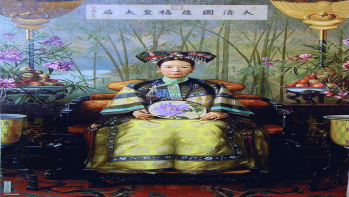
The normative ideal in Chinese imperial tradition marginalized women to the domestic sphere in the palace. This did not stop powerful women from becoming de-facto rulers who handled the affairs of the state. After the reign of Wu Zetian (690-705) – the only Empress in Chinese history – the imperial court and her successors institutionalized mechanisms to prohibit a woman from ever-amassing absolute authority. They did this by either not appointing the princesses and concubines of emperors to the position of the empress, or choosing princesses only from non or lower elite families. This, however, did not put an end to the reign of powerful empresses in China. It is interesting to note how women in power legitimized their rule in a deeply conservative society. Their long reigns were a direct challenge to the idea of the Son of Heaven and Mandate of Heaven- ideas that were central in Chinese history. How did they dodge the normative tradition which equated female authority with misrule? Did the lineage of the dynasty affect how they treated queenships? Women only got a chance to rule when their emperor was ill, dead, or too young to handle the affairs of the state. Dynastic continuity in China, therefore, owes a lot to female rulership, which was essential during periods of political turmoil at the imperial court. Recent scholarship has emphasized areas that had been previously unexplored or under-explored, such as queenly patronage, political representation, diplomatic activity, and political agency in Chinese history. This paper will make a modest attempt to contribute to the scholarship on the institution of Queenship in China and the relationship between gender and power in Chinese history by highlighting the factors that enabled/affected the evolution of Queenship in China prowess of the empresses themselves.
Keywords: Queenship, Empress dowager, Chinese history, Female authority, Legitimacy.
© 2019 ICS All rights reserved.
Powered by Matrix Nodes